Forgotten Heat in Miami: Ricky Davis
Let me tell you the story of Tyree Ricardo Davis, you may know him as “Ricky”. Ricky Davis was J.R. Smith and Dion Waiters before there were memes, a misunderstood player with a long NBA career that spanned more than an entire decade and two different stints in Miami.
You think you would remember him more clearly if he was with the Heat twice in his career, wouldn’t you? In fact, he didn’t miss a single regular-season game the second time around during the team’s disastrous 2007-08 campaign. However, you struggle to come up with an image of him in the red-and-white jersey and all you seem to come up with is “Oh yeah, he is that guy that went AWOL for mysterious reasons for a while, isn’t he?”
Maybe this anecdote about his fine money funding a team outing to Atlantic City best sums up what his career was in Miami and elsewhere:
The time Ricky Davis didn't know he was getting fined & all the $ went toward a Miami Heat night out in Atlantic City
Rejecting the Screen with Don MacLean, @NaismithLives & me
Apple: https://t.co/RRvSbv9Fq4
Spotify: https://t.co/bPdOSazDzX
Everywhere: https://t.co/7kKbFSOLGx pic.twitter.com/oRTgaAYBxK— Noah Coslov (@NoahCoslov) May 14, 2020
Allow me to introduce you to the kid born in Las Vegas that bet it all on himself, thought he was better than a certain future King and certainly put on a show until time found him destined to become yet another “Forgotten Heat”.
AN OVERLOOKED PRODIGY
Davis spent the first 12 years of his life in Vegas, but it wasn’t until his family moved to the small city of Davenport, Iowa that he truly tapped into the potential he had as a basketball player.
Imagine the buzz around Davenport North High School as the kid who had dunked as an eighth grader in a junior high game was about to join its ranks. Davis was the most exciting thing to happen to a city of fewer than 100,000 people since…well, ever. How many times can you walk up and down the Riverfront before you say “Yeah, this is nice, what else is there?”
Davis played for Davenport’s varsity team since he was a freshman and was named to the All-State squad as a junior, he even played Center for Davenport at one point, but he was never a state champion or named a McDonald’s All-American. The national spotlight eluded him, and the gap between what he perceived himself to be and what others saw him as started to widen along with the chip on the shoulders that carried the weight of expectations.
Heading to the League
Ricky could have emulated fellow prep star Tracy McGrady and entered the 1997 NBA Draft out of high school, but he opted to play for coach Tom Wilson at the University of Iowa, a preseason Top 15 program, instead.
That team had four future NBAers and was led by a determined Davis, who averaged 15.0 points per game to become the highest scoring Iowa freshman of the past 25 years, a mark that still stands to this day.
Iowa went 20-11 in the 1997-98 season with Ricky as its offensive stalwart, but it didn’t make the NCAA Tournament. Davis didn’t garner any individual honors either while Michael Olowokandi, Antawn Jamison, Vince Carter and Paul Pierce hogged the spotlight.
He decided to enter the 1998 Draft after just one year of college basketball anyway. In hindsight, a year or two more of development would have been ideal for him…but he was going to show them. He was going to show them all that fame and glory were his destiny.
HELLO, MIAMI
Olowokandi went first, Jamison fourth, Carter fifth, and Pierce ninth. Davis had to wait until the 21st pick to be selected by the Charlotte Hornets, where he played with future Miami Heat teammate Eddie Jones. In fact, Jones helped him in the 2000 Slam Dunk Contest, where he was a last-minute addition after Jamison was injured, but he was no match for “Vinsanity”.
Eddie Jones was an All-Star and had asked for a trade out of an underachieving Hornets team, so Davis ended up joining him in a nine-player extravaganza that would become the largest trade in Miami Heat history.
The Heat were poised to contend and reach the NBA Finals for the first time in franchise history during that 2000-01 season, but Davis barely played seven games before breaking his right foot and watching the Heat get unceremoniously swept by his former Hornets teammates in the first round of the playoffs.
That had to hurt.
Davis wouldn’t make long-term plans in Miami. The 22-year-old guard was traded in a multi-team deal to the Cleveland Cavaliers before the 2001-02 season for Chris Gatling, a marginal veteran.
The Cavs would go on to be 29-53 that year, but Davis had a successful individual season playing all 82 games and improving his scoring average from 4.6 to 11.7 points per game off the bench.
He seemed to be finding a home in Cleveland, blossoming as a potential franchise player and getting recognition for highlights such as a beastly dunk on Steve Nash.
“I dare him to try that again,” Nash said. Don’t mess with Canada, Ricky.
Davis’s Production
Davis averaged a career-high 20.6 points per game and starting 76 of them. However, Cleveland was going from bad to worse collectively at 17-65 and Davis was getting a bad reputation. His misdeeds included butting heads with coach Paul Silas and intentionally missing his own shot to grab a rebound and get a triple-double as time expired in a 120-95 Cavaliers win at home over the Utah Jazz
That pissed many people off, including the commonly reserved Jazz coach Jerry Sloan ( “I would have fouled him too. I would have knocked him on his ass”) while some sportswriters even called for his suspension and fans nicknamed him “Wrong Rim Ricky.”
Davis and LeBron
None of that truly mattered anyway. Cleveland was eagerly awaiting the arrival of “The King”, the hometown hero who would make everything right.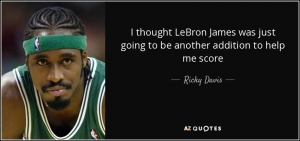
Ricky Davis initially thought that LeBron was there to be his sidekick, but the rookie had other plans and averaged 20.9 points as Cleveland’s leading scorer while Ricky averaged 15.3 in 22 games before being traded to the Boston Celtics in December as his lack of on-court chemistry with LeBron was evident and Davis was no mentor for him.
“I knew (LeBron) was the real thing when he came in….it was the era when no boys where allowed.”
The Cavs had chosen sides. LeBron was selfless, while Davis was selfish. A self-centered shooting guard that put the emphasis on “shooting”. Davis was becoming a basketball nomad with his fourth team in six seasons.
That wouldn’t change in the upcoming years as he would be traded from Boston to Minnesota in 2006 despite being appreciated by fans, and then back to Miami for an unexpected second stint under Pat Riley that Davis called “life changing.”
That trade was seen as a win for the Heat, which was able to unload the Antoine Walker deal. But in reality it was just exchanging one erratic shooter for another.
“It was a good trade for Miami; I didn’t think it was a good trade for Antoine,” Paul Pierce said at the time, and he was wrong as usual.
Wade’s Wingman
Ricky Davis was supposed to be Dwyane Wade’s sidekick and help lead Miami’s resurgence just two years removed from a championship. However, Wade was hampered by a shoulder injury that would limit him to 51 games that season. The Miami offense ended up running through Davis most of the time.
“We will run all of the things we run for Dwyane for [Davis], so we don’t have to change our offense that much,” Riley said before the 2007-08 season.
Bad idea. Davis played all 82 games for the second time in his career in a sixth man role. He started 47 of them, but barely averaged 13.8 points while playing 36 minutes a game. He also dealt with personal issues, including a five-game suspension for failing the league’s Anti-Drug program.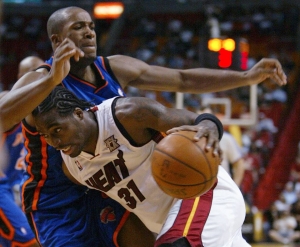
His lone shining moment came in April, 2008. He went off to tie a Miami Heat record of three-pointers in a single game with nine. His 33 points weren’t enough in a 109-95 loss against the Wizards.
By this point in his career, over a decade in, his demons were stronger than his talent. They would also be his demise.
Just like in Cleveland, Davis’ expanded role didn’t translate into wins. The Heat went 15-67. Davis helped drive Riley into coaching retirement before being traded to the Clippers in July, 2008.
His life as a basketball nomad continued with two forgettable seasons in Los Angeles before being waived in 2010. He would never step foot in an NBA court again.
Ricky Davis: WANDERING AND WONDERING
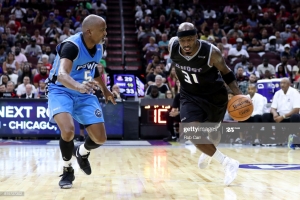
PHILADELPHIA, PA – JULY 16: Ricky Davis #31 of the Ghost Ballers. (Photo by Rob Carr/BIG3/Getty Images)
The following decade would see him play in Turkey, China, France, Puerto Rico and the NBA D-League between 2011 and 2013, where he suffered one final indignity after being waived by the Erie BayHawks having averaged 8.5 points and 3.3 rebounds in 11 games.
He seems to have found a home with the “Big 3” basketball league as the co-captain of the Ghost Ballers. But he also never forgot about Miami. Davis actually made it a point to give back to the South Florida community before playing there in 2018.
If Davis hadn’t had such a big chip on his shoulder, if he had been more about “we” than “me”, then maybe he would have won a ring as a supporting player in a contender. Now he is just a fleeting memory of what could have been.
For the first two chapters of the “Forgotten Heat” saga, click here and here.
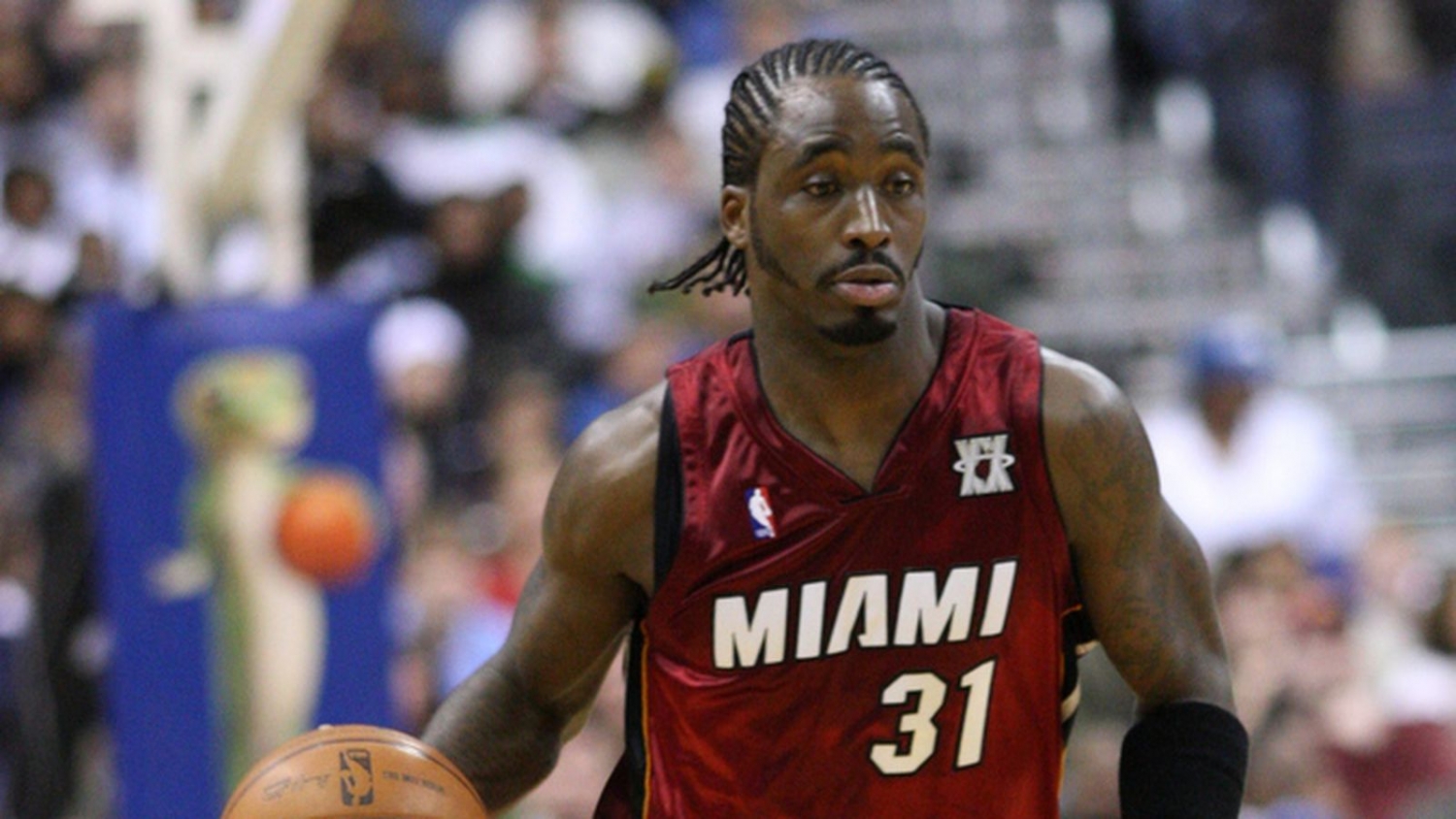
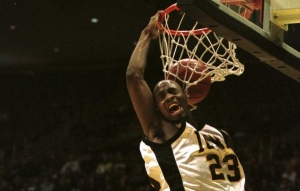

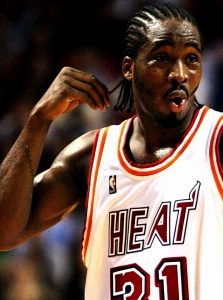
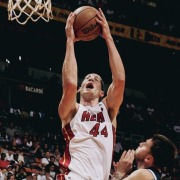
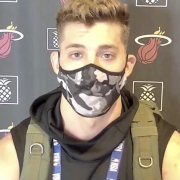
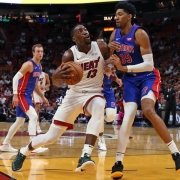
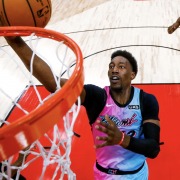
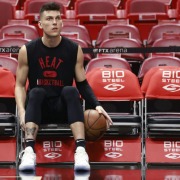
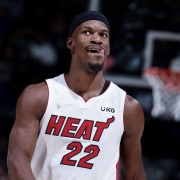


Dr. Tom Davis was the coach at Iowa man. Who the hecks is Tom Wilson??